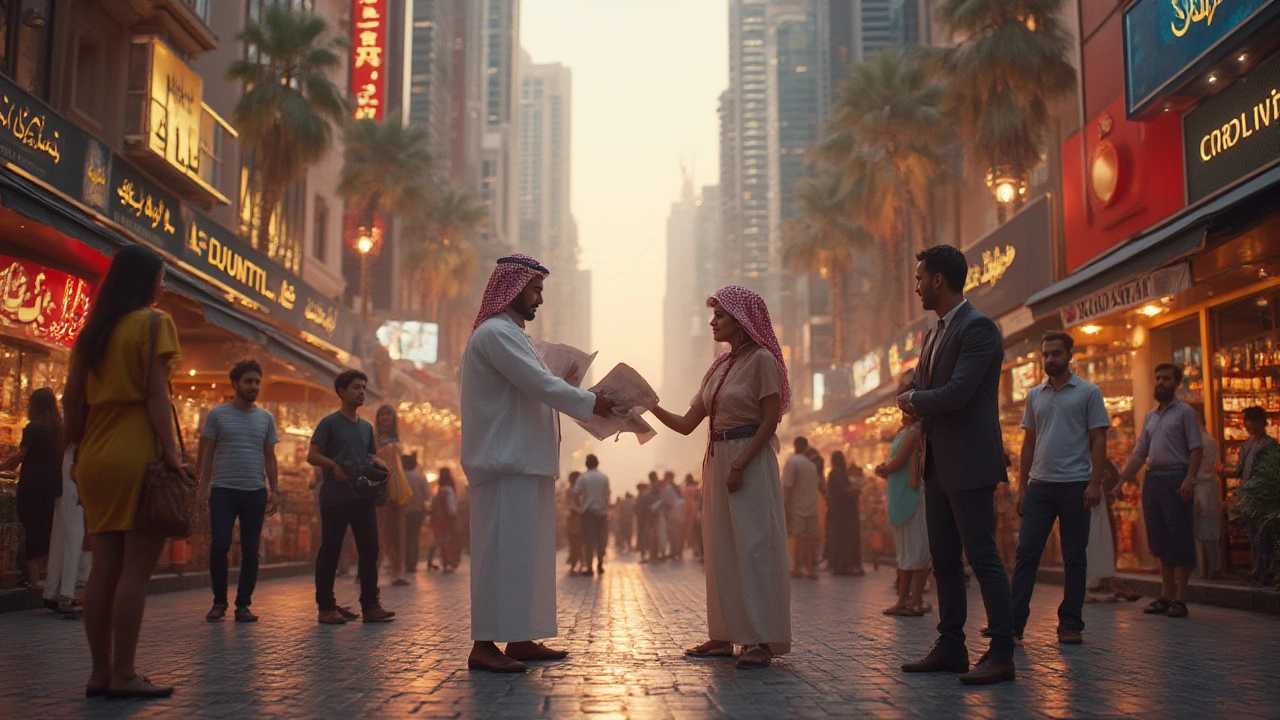Language in Dubai: What You Need to Know
Dubai is a melting pot of cultures, so you’ll hear a mix of languages everywhere you go. The official language is Arabic, but English is spoken by most locals, expats, and service staff. Knowing a few key words in Arabic and understanding how English is used can make your visit smoother and more enjoyable.
First, don’t stress if you’re not fluent in Arabic. Most signs, menus, and apps are bilingual, and people are happy to help when you make an effort. A simple "Hello" or "Thank you" in Arabic goes a long way. Below are the most useful phrases and tips you can start using right away.
Everyday Arabic Phrases
These five phrases cover the basics you’ll need in taxis, restaurants, and shops:
- As-salamu alaykum – Hello (formal, respectful)
- Marhaba – Hi (casual)
- Shukran – Thank you
- Min fadlak (to a male) / Min fadlik (to a female) – Please
- Kam al-thaman? – How much?
Pronounce each word slowly and clearly. Arabic sounds are different from English, but locals appreciate even a rough attempt. If you’re unsure, just smile and say the English word; most people will understand.
English and Slang in Dubai
English works everywhere, but you’ll hear a local flavor in the way it’s spoken. Phrases like "Yalla" (let’s go) and "Habibi" (friend) pop up in everyday conversation. They’re friendly and not offensive, so feel free to use them when you’re comfortable.
When you’re ordering food, you might hear "Samoosah" (a type of bread) or "Shawarma" (grilled meat wrap). Knowing these terms helps you read menus faster. In hotels, staff will often ask "Do you need help with your luggage?" If you want to decline politely, say "La, shukran" (No, thank you).
For texting or social media, many residents use a blend of Arabic and English called "Arabizi" – Arabic words typed using the Latin alphabet and numbers. Example: "7abibi" means "my dear". You don’t need to adopt it, but recognizing it can prevent confusion in chats.
Here are three quick tips to improve communication:
- Use translation apps like Google Translate or the UAE’s local "Mala" app for on‑the‑spot help.
- Ask for clarification politely: "Excuse me, could you repeat that?" shows respect.
- Watch hand gestures. A thumbs‑up means "good", but pointing with your left hand is considered rude.
Learning a few Arabic numbers also helps with shopping and taxis. Count from one to ten: "Wahid, ithnan, thalatha, arba'a, khamsa, sitta, sab'a, thamania, tis'a, ashara". When you can say the fare amount, drivers will appreciate the effort.
If you want a deeper dive, enroll in a short Arabic course at the Dubai Women’s College or use online platforms like Duolingo. Even ten minutes a day builds confidence.
Bottom line: English gets you through most interactions, but sprinkling in Arabic greetings and simple phrases shows respect and often earns a smile. Keep these basics in mind, and you’ll navigate Dubai’s bustling streets, souks, and high‑rise cafés with ease.

- Jul, 13 2025
- 0 Comments
What Language Is Spoken in Dubai? A Complete Guide to Dubai’s Linguistic Landscape
Curious about what language is spoken in Dubai? Discover the fascinating multilingual mix that shapes daily life, work, and travel in Dubai.
read more